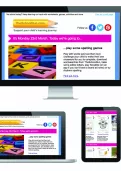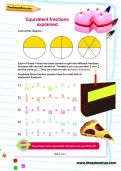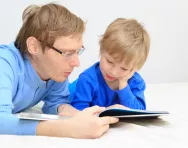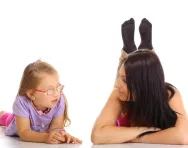Important update from TheSchoolRun
For the past 13 years, TheSchoolRun has been run by a small team of mums working from home, dedicated to providing quality educational resources to primary school parents. Unfortunately, rising supplier costs and falling revenue have made it impossible for us to continue operating, and we’ve had to make the difficult decision to close. The good news: We’ve arranged for another educational provider to take over many of our resources. These will be hosted on a new portal, where the content will be updated and expanded to support your child’s learning.
What this means for subscribers:
- Your subscription is still active, and for now, you can keep using the website as normal — just log in with your usual details to access all our articles and resources*.
- In a few months, all resources will move to the new portal. You’ll continue to have access there until your subscription ends. We’ll send you full details nearer the time.
- As a thank you for your support, we’ll also be sending you 16 primary school eBooks (worth £108.84) to download and keep.
A few changes to be aware of:
- The Learning Journey weekly email has ended, but your child’s plan will still be updated on your dashboard each Monday. Just log in to see the recommended worksheets.
- The 11+ weekly emails have now ended. We sent you all the remaining emails in the series at the end of March — please check your inbox (and spam folder) if you haven’t seen them. You can also follow the full programme here: 11+ Learning Journey.
If you have any questions, please contact us at [email protected]. Thank you for being part of our journey it’s been a privilege to support your family’s learning.
*If you need to reset your password, it will still work as usual. Please check your spam folder if the reset email doesn’t appear in your inbox.
Help develop your child's communication skills

The ability to communicate is something many of us take for granted, but one in ten children in the UK struggle with a communication development or disability.


Boost your child's maths & English skills!
- Follow a weekly programme
- Maths & English resources
- Keeps your child's learning on track
A child or young person may have a communication disability if they cannot express themselves, understand others or build relationships because of problems in one of more of these areas:
- Understanding and finding the right words
- Producing, ordering and discriminating between speech sounds
- Using rules about how words, phrases and sentences are formed to convey meaning
- Using and understanding language in different social contexts
Develop your child’s communication skills
- Play lots of games that encourage children to talk, such as I Spy, Spot the Difference and Simon Says
- Give your child lots of opportunity to speak to you
- With younger children, repeat their sentences back correctly to show that you are listening and so that they can hear examples of proper speech
- Give your child plenty of time to get their words out
- Read books that make use of repetition, such as those containing rhymes and songs
- Listen to your child with interest, ask them about their day, and to retell familiar stories to you








